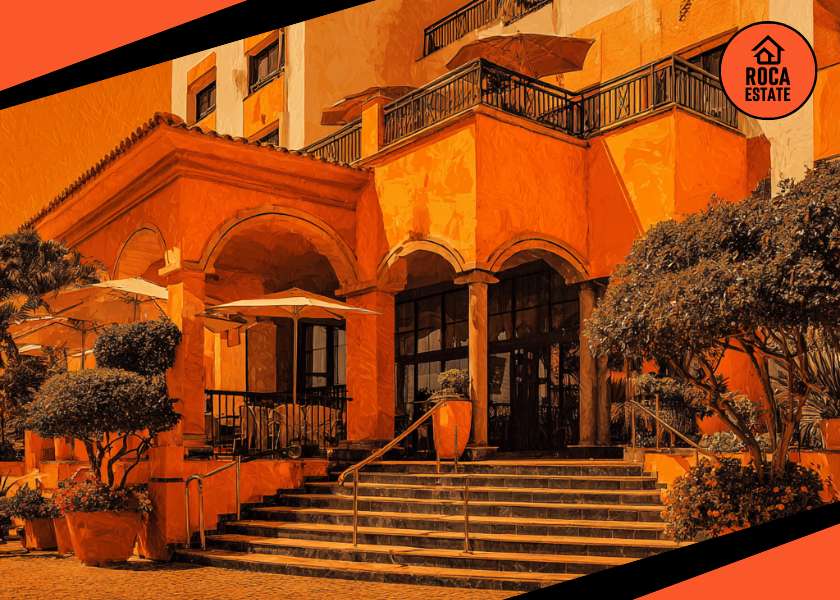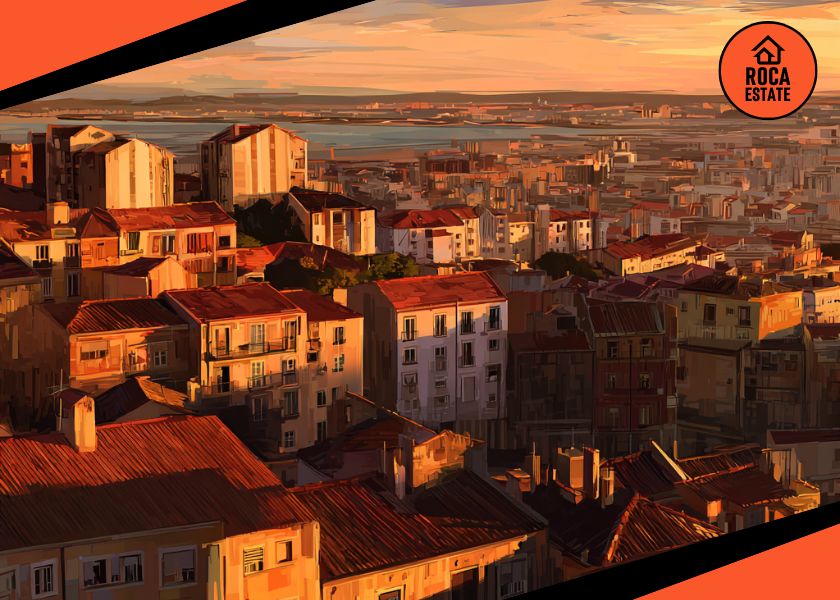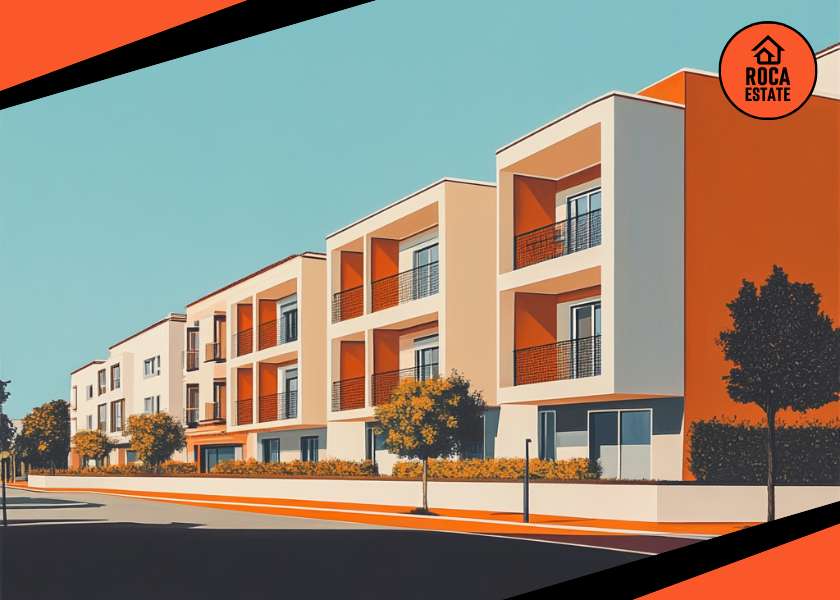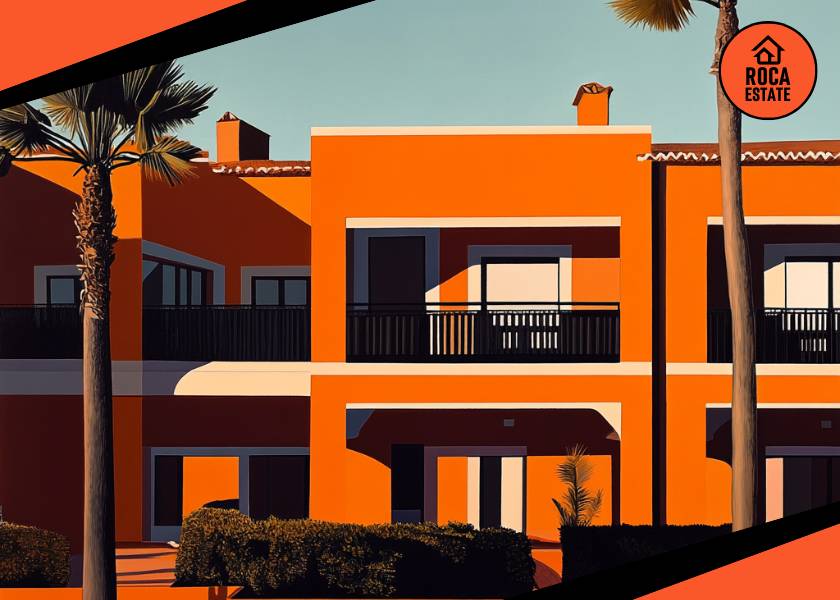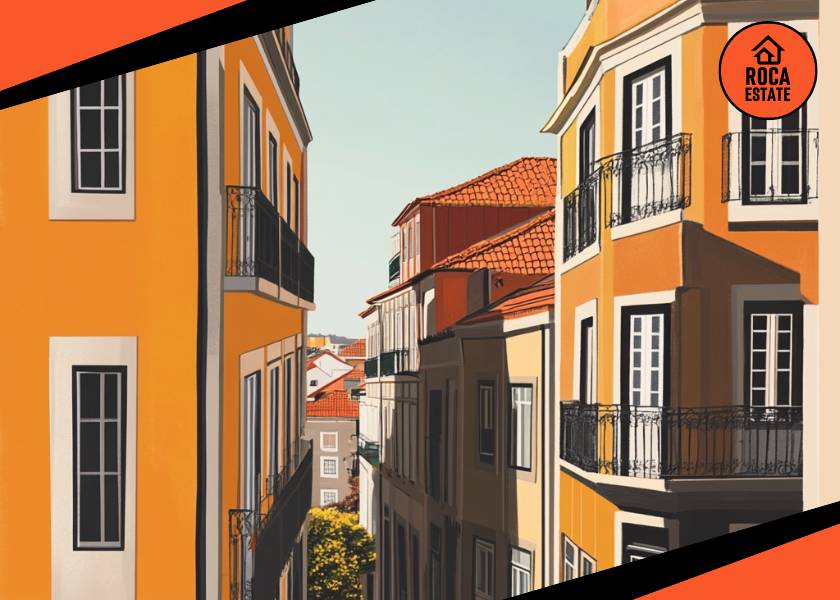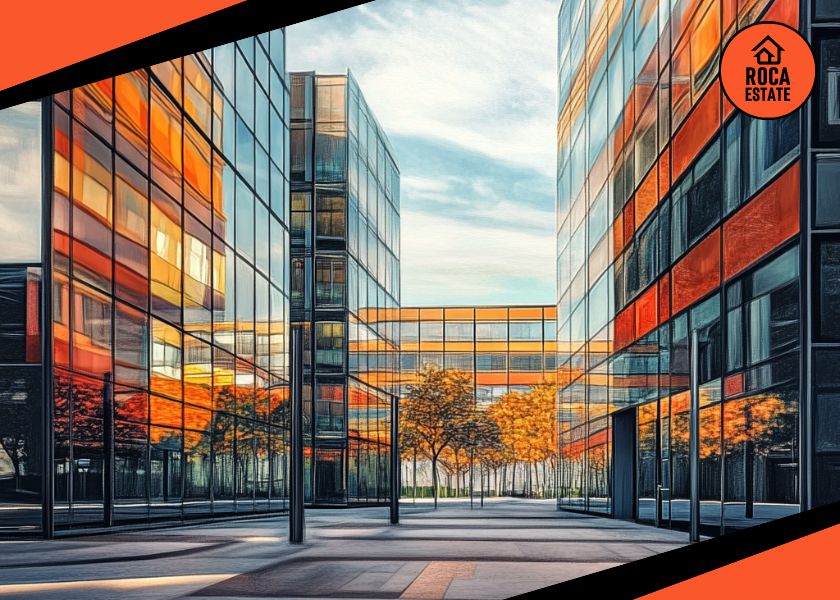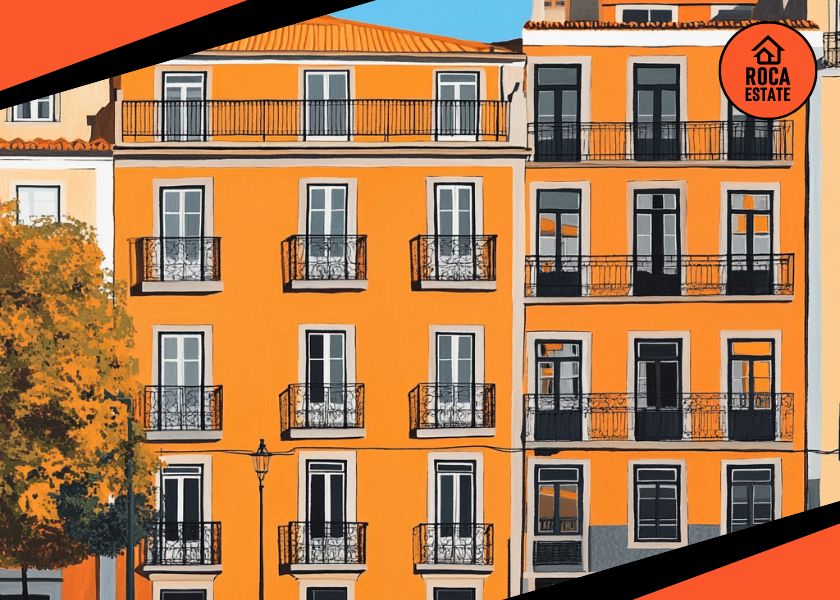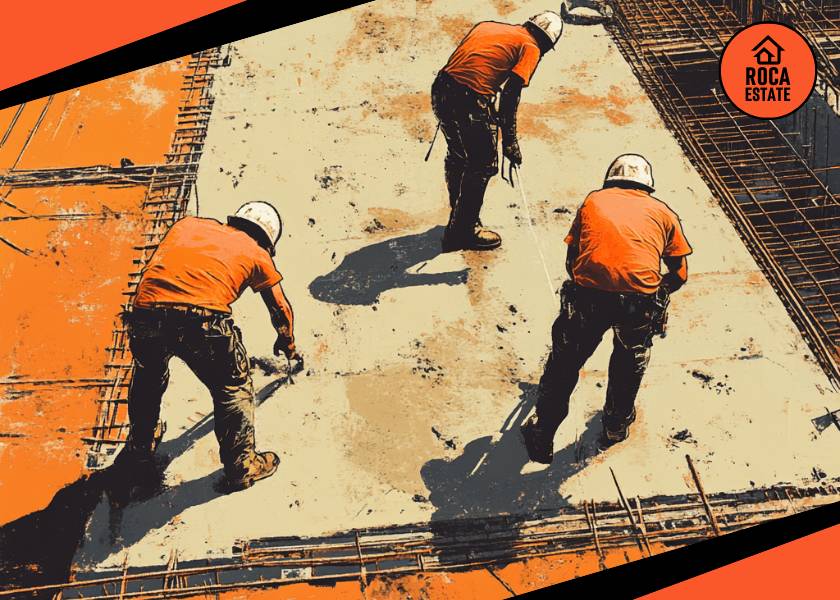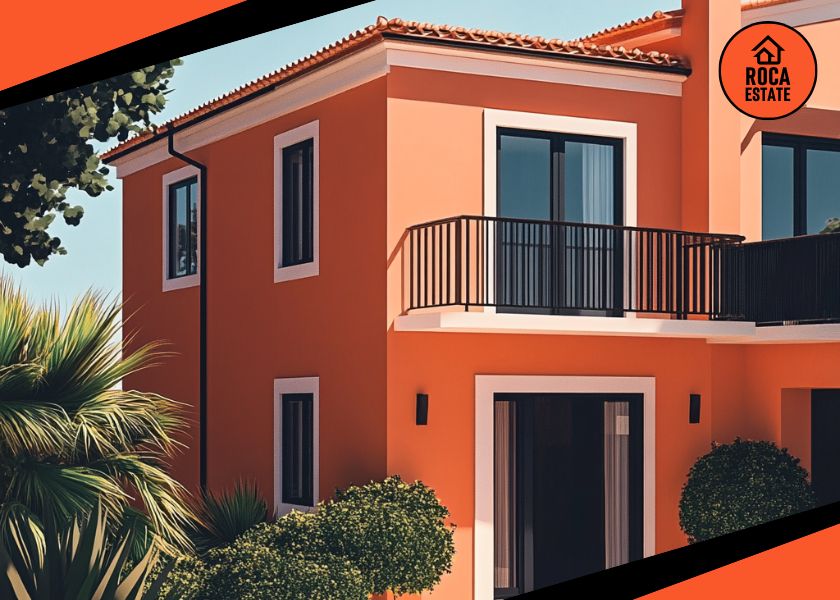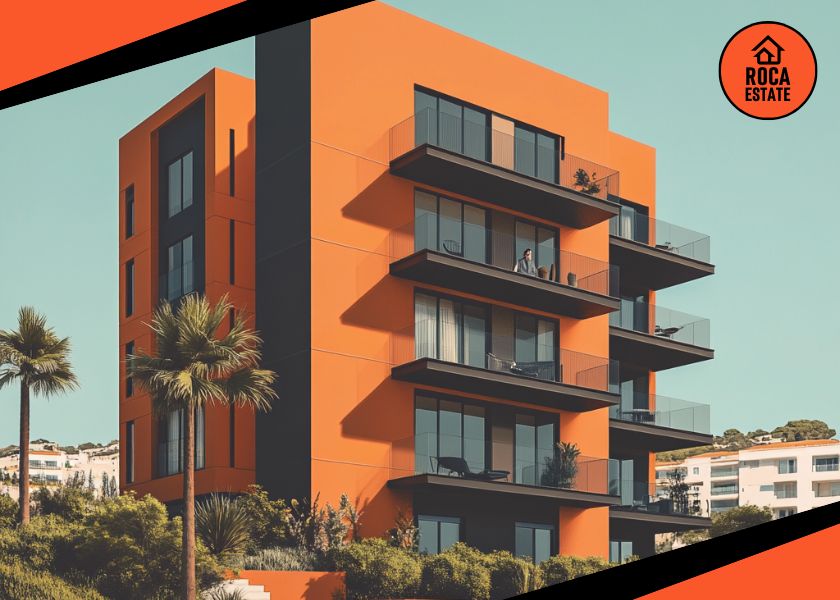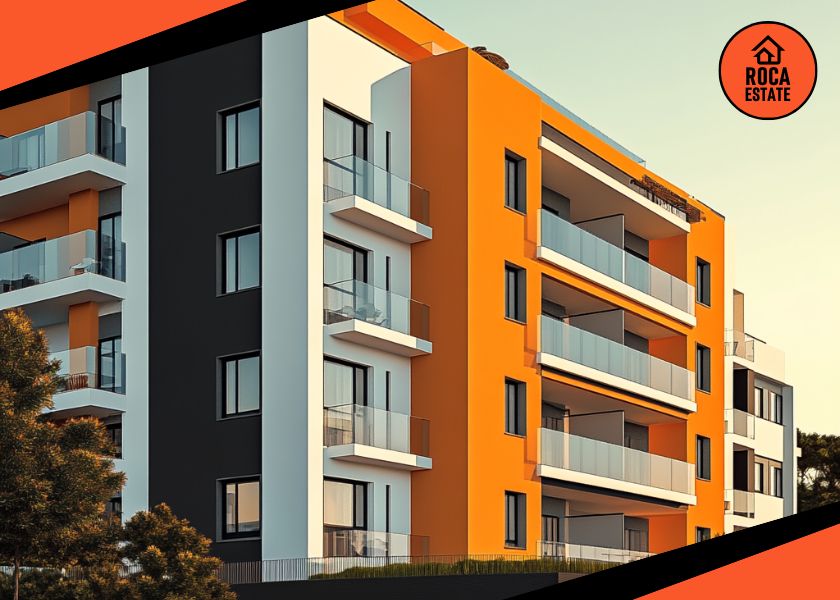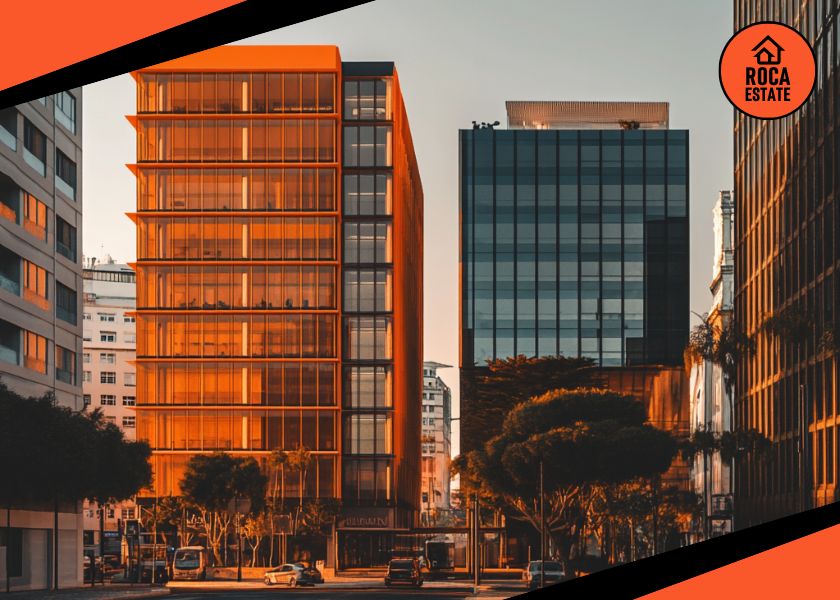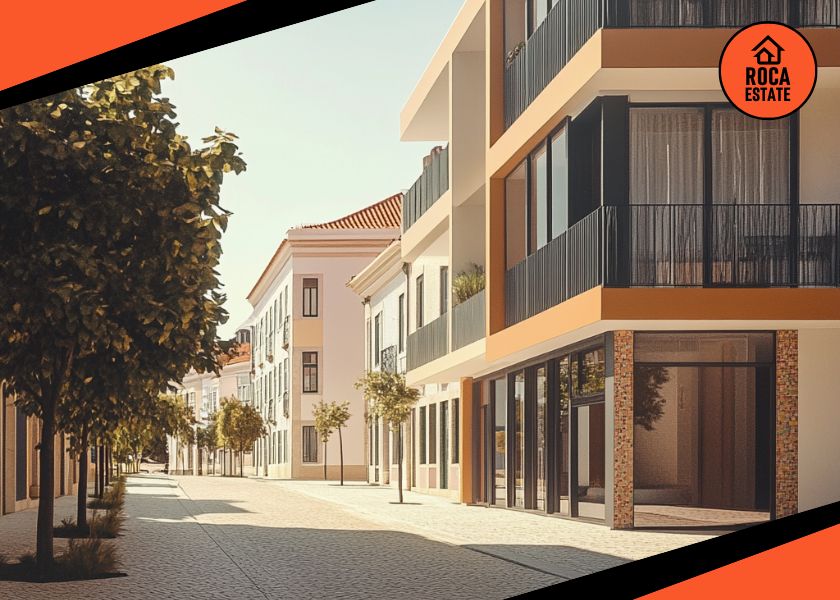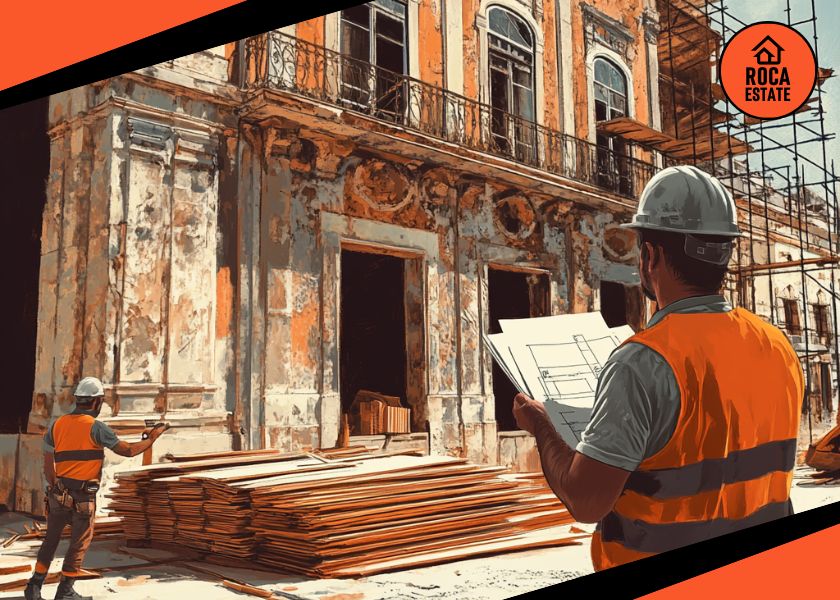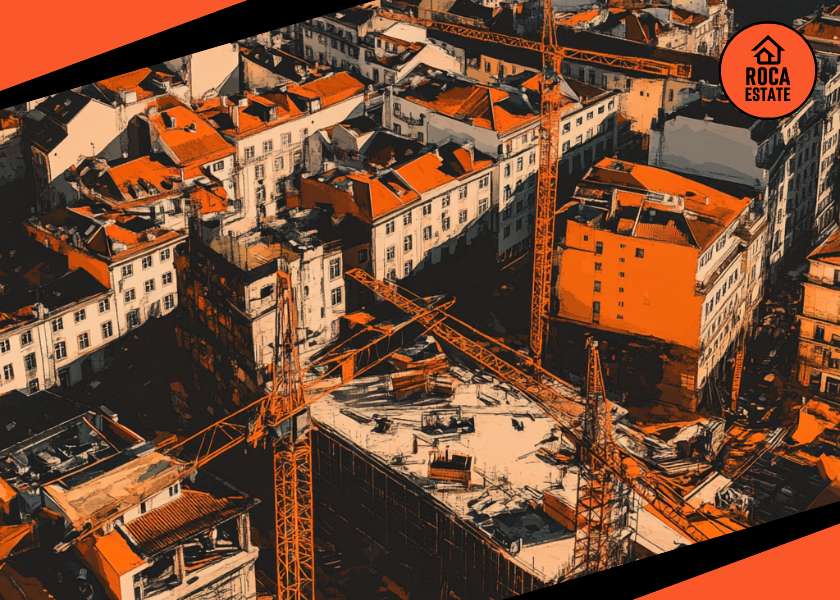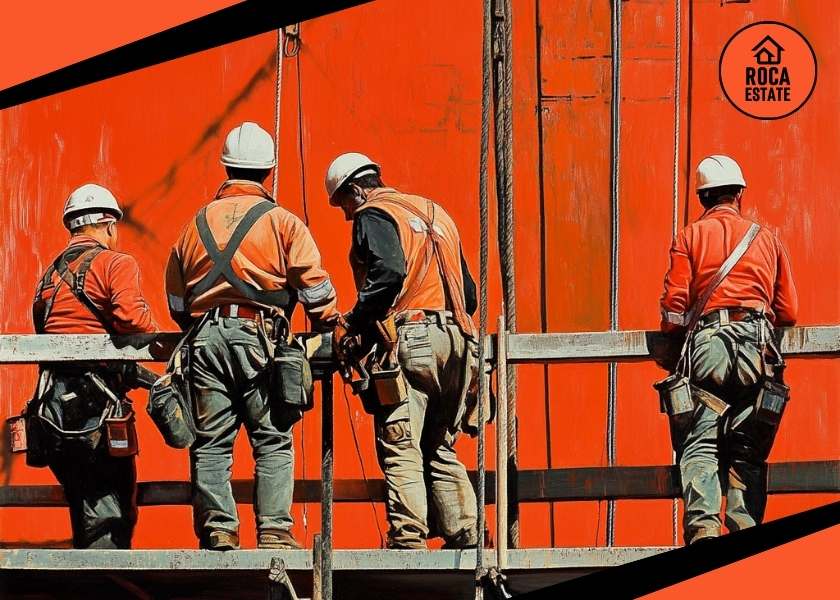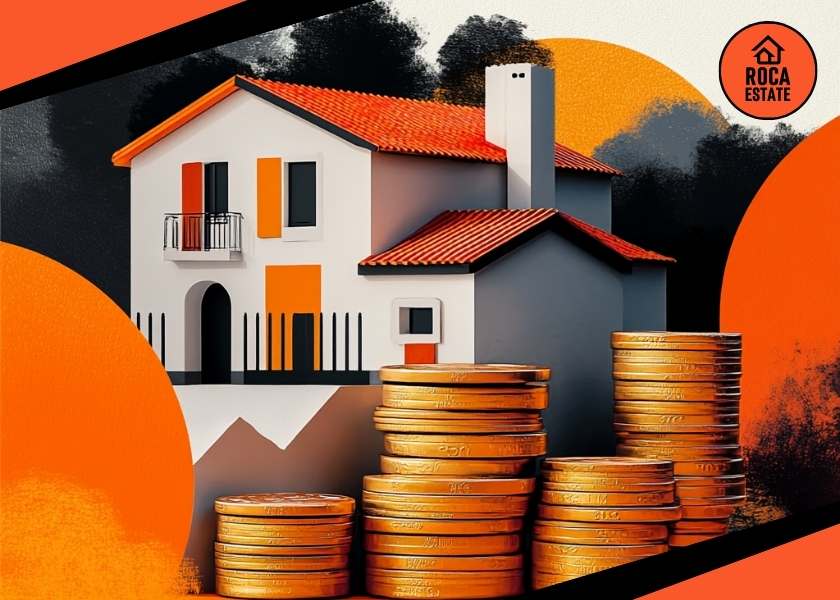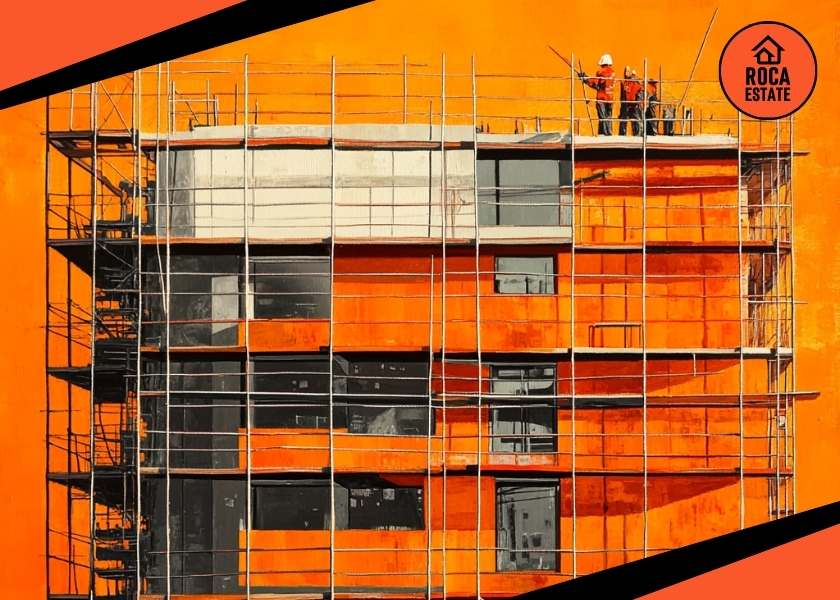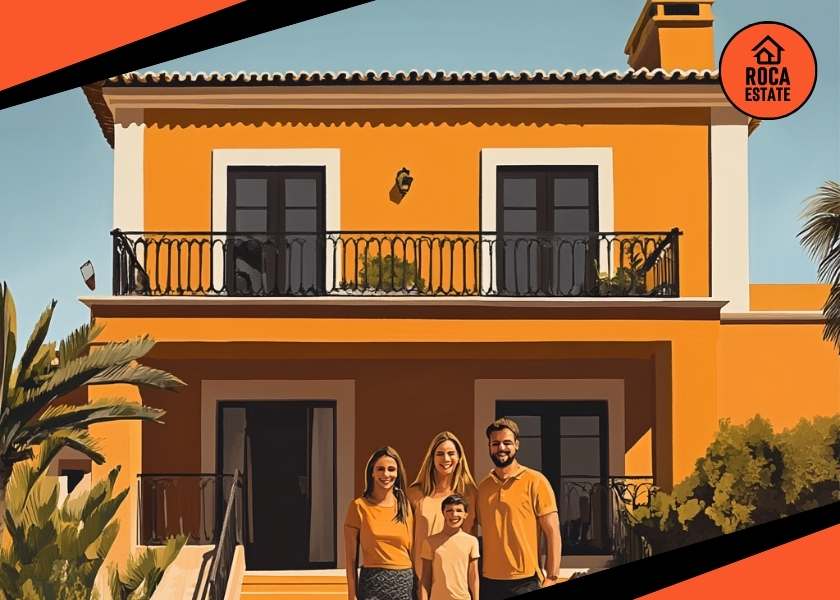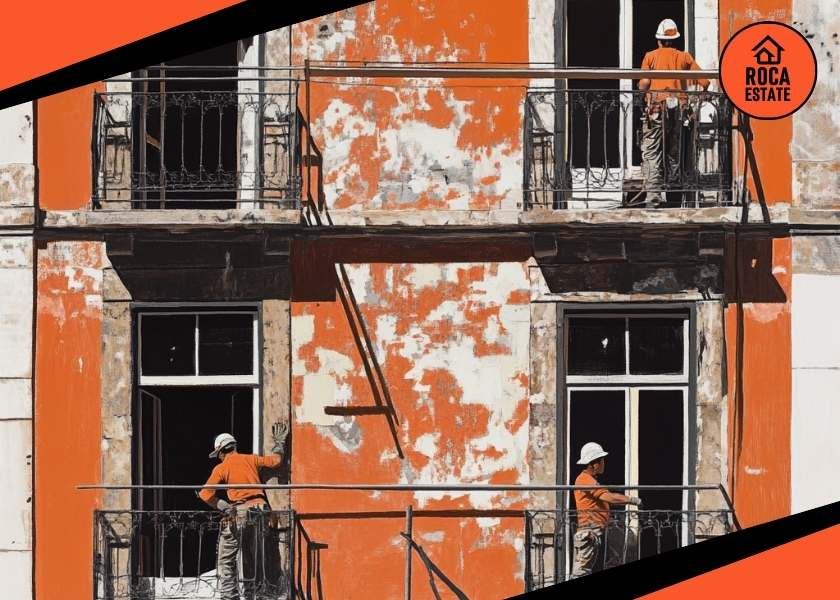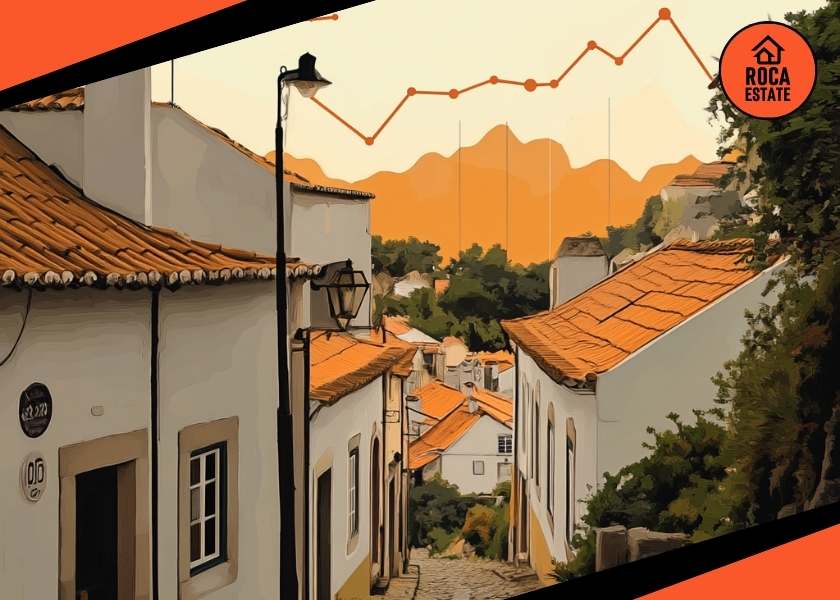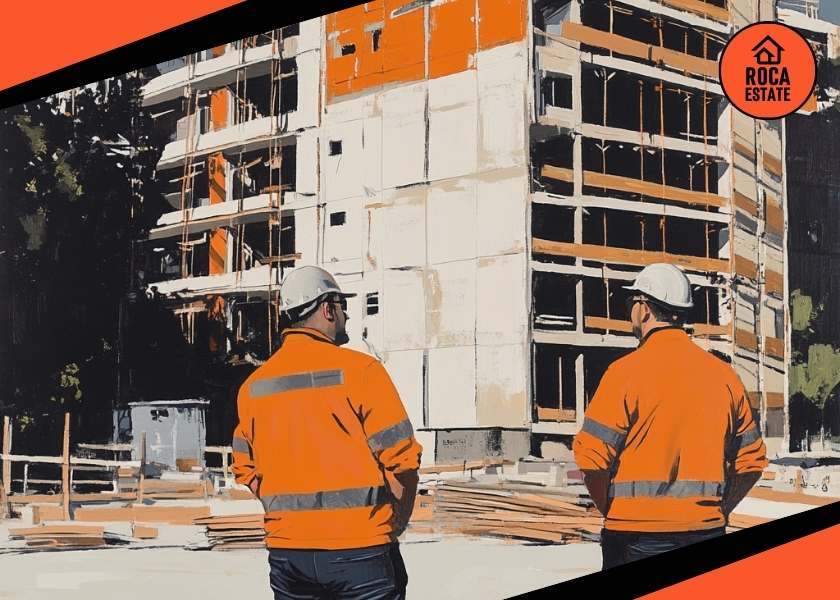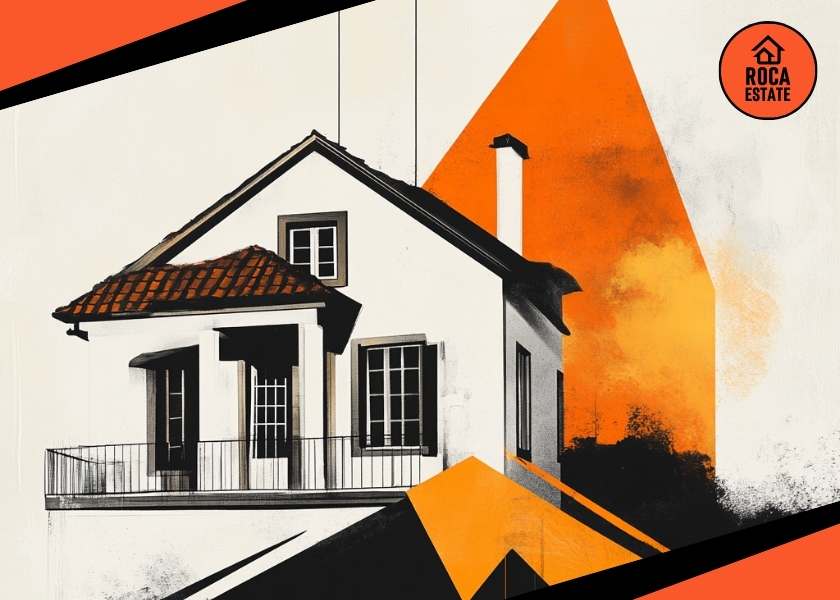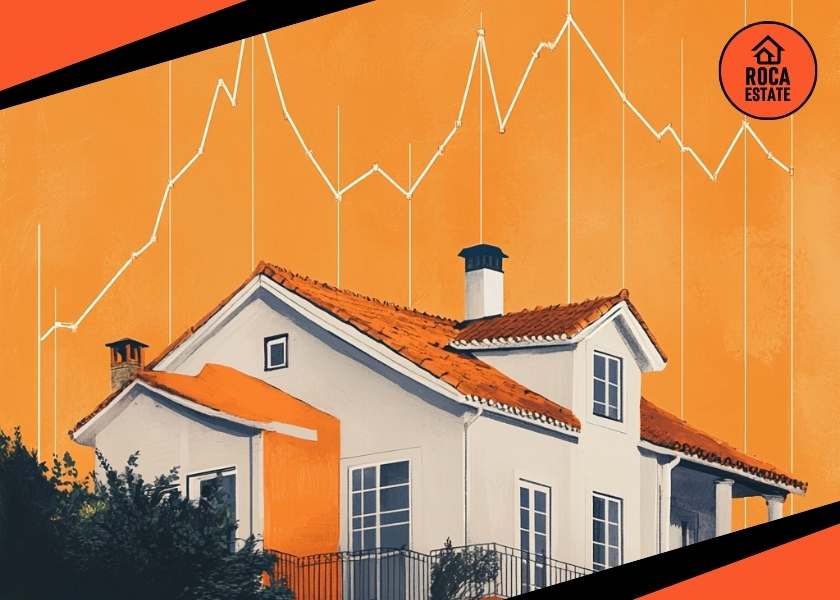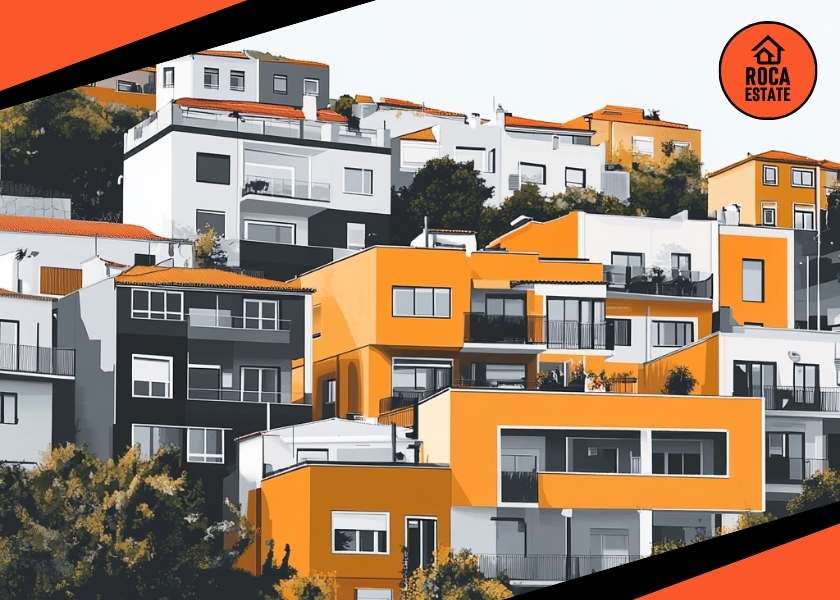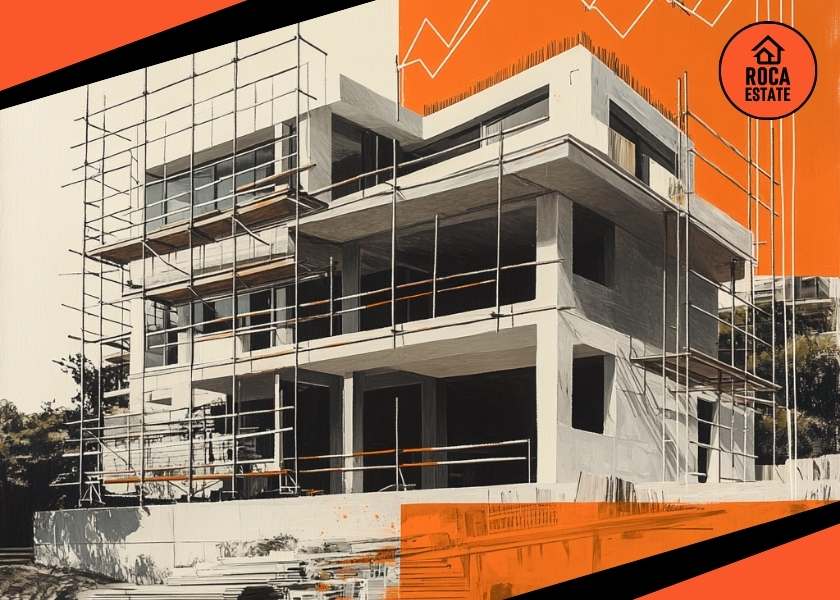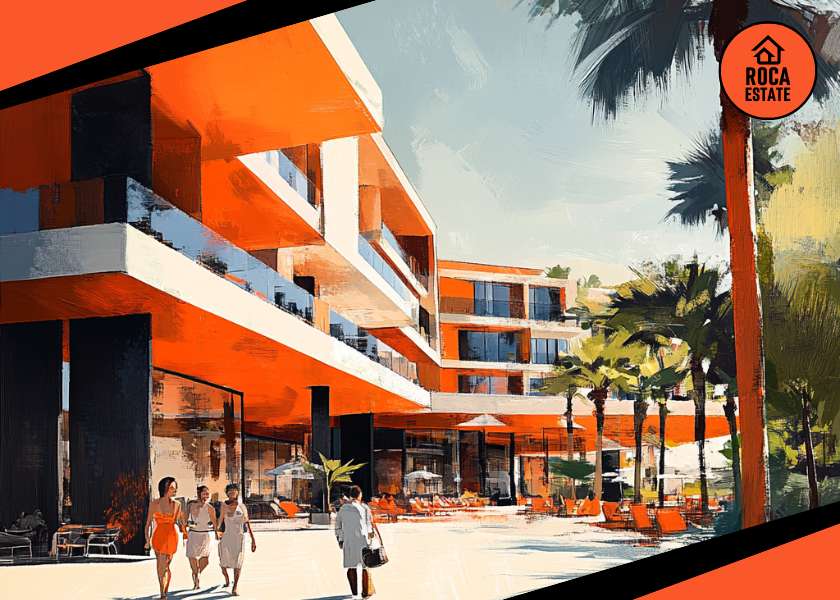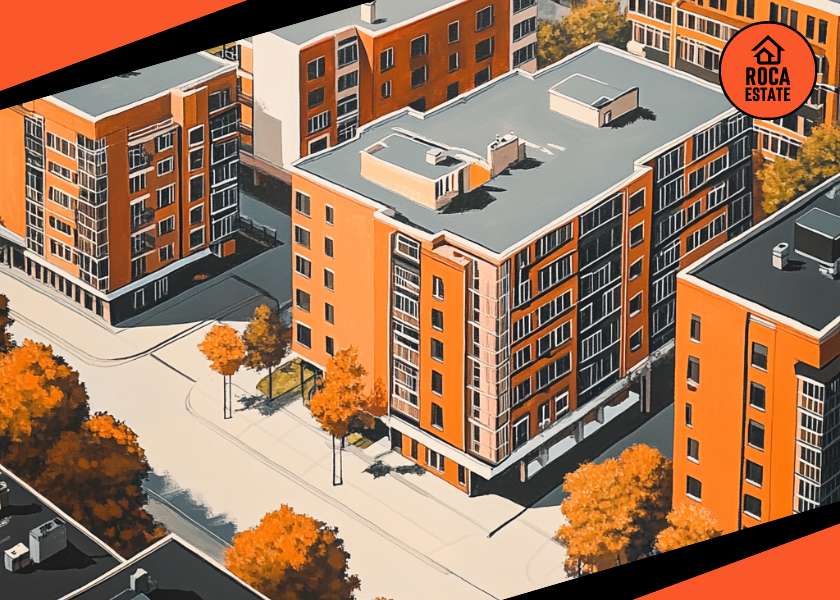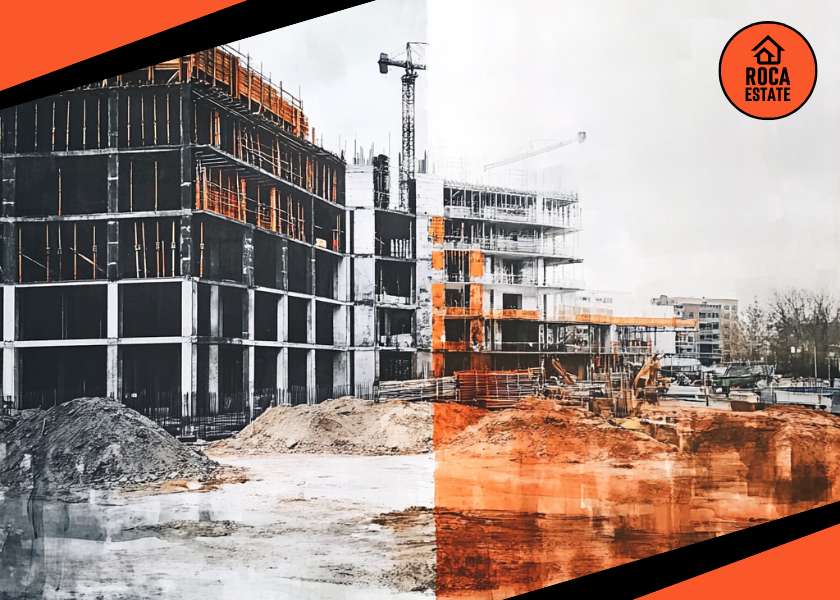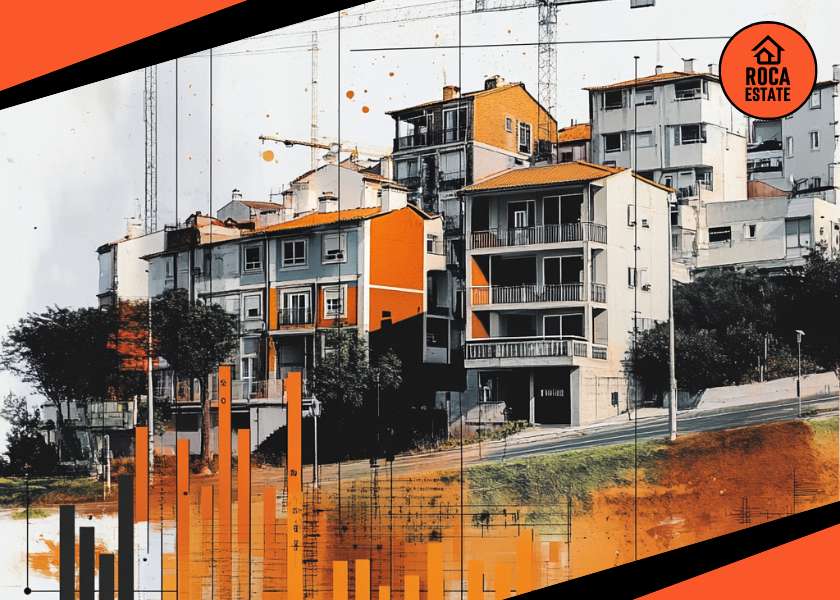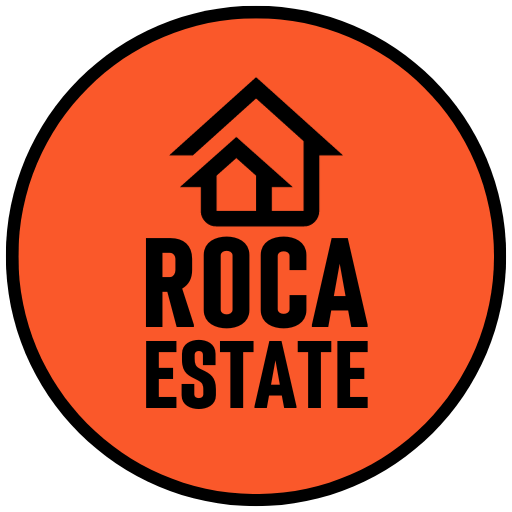In this guide, we focus on the growing trend of immigration from Israel to Portugal, offering a new perspective on this life-changing decision. Delving into key comparisons between the two countries, we cover aspects such as quality of life, climate diversity, economic landscapes, and healthcare systems. Economic opportunities are a significant factor in the decision of immigration from Israel to Portugal. Further, we provide an insightful look into Portugal’s real estate market, detailing the advantages of property ownership in this beautiful country. Additionally, we discuss the legal frameworks and programs that facilitate moving to Portugal. At Roca Estate, we are committed to ensuring a seamless transition for those looking to make Portugal their new home.
Embracing Change: A Detailed Comparison Between Israel and Portugal

Israel and Portugal, two nations with rich histories and vibrant cultures, offer unique experiences to their residents and visitors alike. While Israel is often celebrated for its technological innovations and deep historical roots, Portugal is renowned for its breathtaking landscapes and a more relaxed lifestyle. The cultural shift experienced through immigration from Israel to Portugal offers a unique blend of traditions and modernity. Both countries boast warm, hospitable people and a strong sense of community, making them attractive destinations for those seeking a new home. However, when we delve deeper into various aspects of life in these countries, we uncover distinct differences that set them apart.
Israel: A Dynamic Blend of Tradition and Innovation
Israel, a relatively young nation established in 1948, covers an area of approximately 22,072 square kilometers. Despite its small size, it boasts a population of around 9.3 million people, reflecting a diverse tapestry of cultures and ethnicities. Israel’s economy is a powerhouse in the Middle East, known for its cutting-edge technology and robust entrepreneurial ecosystem. The nation’s landscape is remarkably diverse, ranging from the fertile valleys of the Galilee to the arid Negev desert.
Portugal: Timeless Charm With Modern Living
Portugal, with a history that spans centuries, covers an area of 92,212 square kilometers. It has a population of about 10.3 million, offering a blend of traditional and contemporary lifestyles. The country’s economy is growing steadily, with significant contributions from tourism, agriculture, and renewable energy sectors. Portugal’s geography is equally diverse, featuring everything from the lush Douro Valley and Algarve’s stunning beaches to the mountainous regions of the north.
Climate and Geography
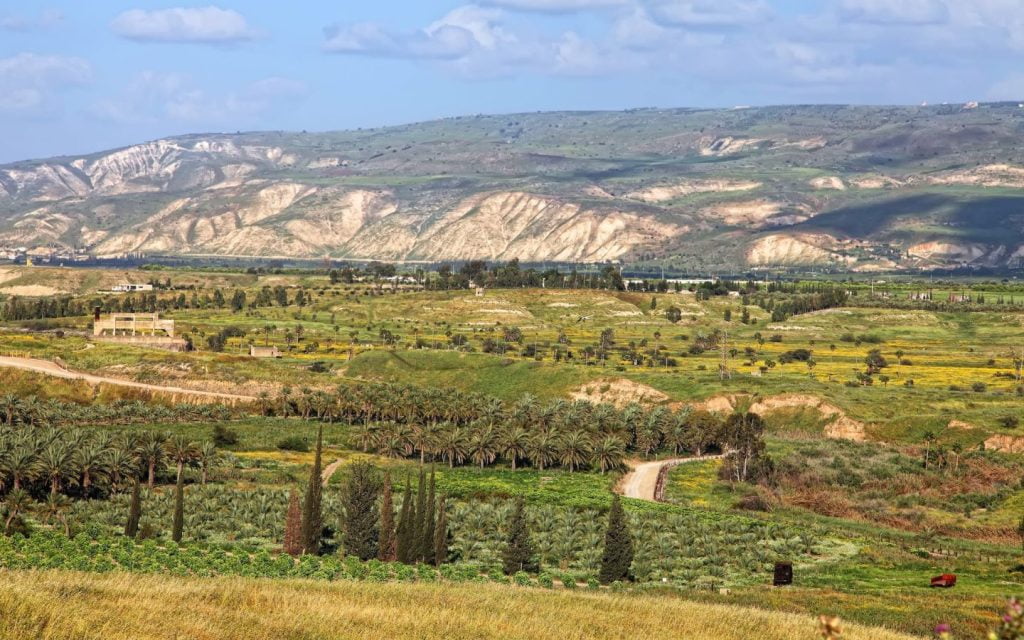
The climate and geography of Israel and Portugal are distinct, each shaped by their unique geographical positions and topographical features. Adapting to the climate in Portugal is an important consideration for those looking into immigration from Israel. Israel, located at the eastern end of the Mediterranean Sea, encompasses a variety of climatic zones. The coastal areas along the Mediterranean experience hot, humid summers and mild, rainy winters, affecting major cities like Tel Aviv and Haifa. Inland, the central highlands, including Jerusalem, transition to a more temperate climate with cooler temperatures and occasional winter snowfall. The southern part of Israel is dominated by the Negev Desert, characterized by its semi-arid conditions, hot, dry summers, and mild winters with minimal rainfall. The Jordan Valley and the Dead Sea area, part of the Syrian-African Rift, experience a hot, dry desert climate with extreme temperatures in summer.
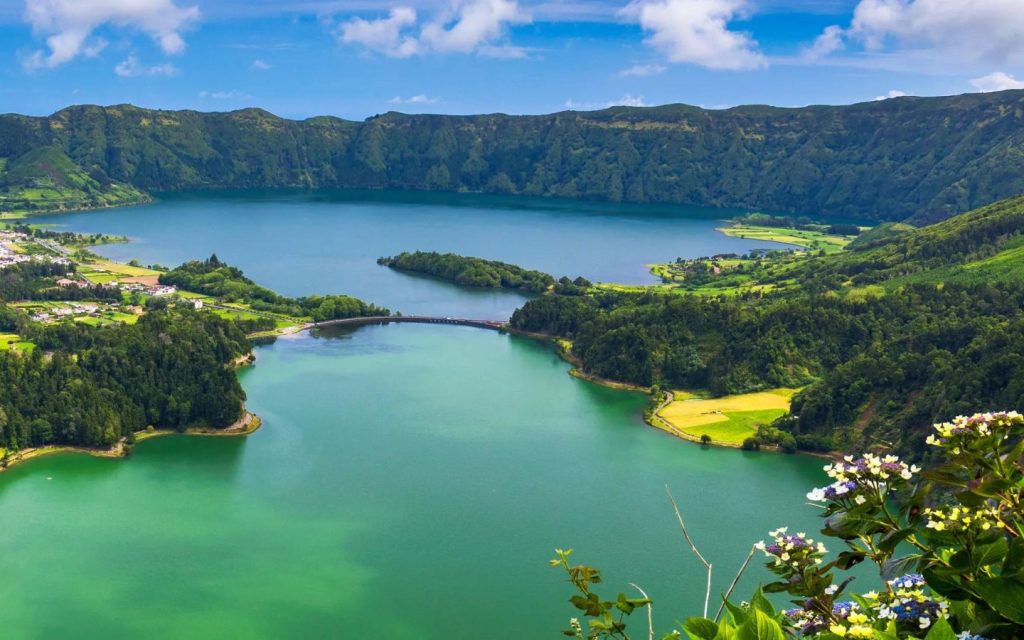
Portugal, situated on the Iberian Peninsula and bordering the Atlantic Ocean, exhibits a diverse range of climatic conditions. The northern region, including cities like Porto, is influenced by a temperate maritime climate, leading to cooler, wetter weather, particularly in winter, and is known for its lush, green landscapes. The central and southern parts of Portugal, including Lisbon and the Algarve, enjoy a Mediterranean climate characterized by hot, dry summers and mild, moderately rainy winters. The Madeira and Azores archipelagos, located in the Atlantic, experience a subtropical climate. Madeira has mild temperatures year-round with moderate rainfall, while the Azores are known for their humid, temperate climate with more frequent rainfall and mild temperatures throughout the year. The interior regions of Portugal, particularly at higher elevations like the Serra da Estrela mountains, experience a more continental climate with hot, dry summers and cold, snowy winters.
Exploring the Social and Cultural Life of Israel and Portugal

The cultural and social life in Israel and Portugal reflects the rich histories and diverse influences that have shaped these countries. In Israel, the cultural landscape is a mosaic of traditions and customs drawn from the Jewish diaspora and the various ethnic groups that reside within its borders. This diversity is evident in its vibrant social life, festivals, and culinary scene, which blend traditional Jewish culture with elements from Middle Eastern and Mediterranean cuisines. Israel’s society is also marked by its emphasis on family and community, with religious and national holidays playing a central role in social life. The country’s history, particularly its ancient biblical sites, significantly influences its cultural identity.
In contrast, Portugal’s cultural and social life is deeply rooted in its history as a maritime nation, which has brought a variety of cultural influences to its shores. Portuguese culture is characterized by a strong sense of tradition and history, evident in its architecture, music, and literature. The country’s social life revolves around family and community, with a laid-back approach to life that emphasizes enjoying simple pleasures. Festivals and religious observances, often honoring saints or historical events, play a significant role in Portuguese social life. Additionally, Portugal is known for its rich culinary traditions, with an emphasis on seafood and regional specialties, reflecting its geographical location and history.

Both Israel and Portugal boast dynamic and diverse cultural scenes, with Israel being more influenced by its modern formation as a state and the diverse backgrounds of its population, while Portugal’s culture is shaped by its long history and maritime heritage. In both countries, the importance of family, community, and tradition is central to the social fabric, creating a welcoming and vibrant atmosphere for residents and visitors alike. Building a new community is a key part of the journey of immigration from Israel to Portugal.
Insight into Israel and Portugal’s Economic Profiles
Israel’s economy is distinguished by its high level of technological advancement and innovation. This is largely driven by substantial investments in research and development, particularly in the fields of high-tech and biotechnology. The country has earned a reputation as a “startup nation,” with a high concentration of startups per capita, especially in sectors like cybersecurity, medical technology, and agritech. This focus on technology has not only fueled domestic economic growth but also positioned Israel as a significant player in the global market, particularly in terms of technology exports. Alongside its technological prowess, Israel’s economy is bolstered by a strong industrial sector, which includes the manufacturing of products ranging from chemicals to electronics. Tourism also plays a vital role in the economy, with the country’s rich historical and religious sites attracting visitors from around the world.

Portugal’s economy, on the other hand, is characterized by its diversity and the significant role played by the tourism, agriculture, and renewable energy sectors. The tourism industry has been a major driver of economic growth, benefiting from the country’s rich cultural heritage, historic cities, and beautiful landscapes. Agriculture remains a key sector, with Portugal being a significant producer of olive oil, wine, and cork. The textile industry, historically important for Portugal, continues to contribute to the economy, although it has faced challenges due to global competition. In recent years, Portugal has made notable advancements in renewable energy, particularly in wind and solar power, reflecting a growing commitment to sustainable development. The country’s economy has also been supported by its integration into the European Union, which has facilitated trade and investment.
The table below provides a comparative overview of key economic indicators for Israel and Portugal:
| Economic Indicator | Israel (€) | Portugal (€) |
| Gross Domestic Product (GDP) PPP | €307.56 billion | €307.00 billion |
| GDP per Capita PPP | €33,304 | €30,176 |
| Inflation Rate | 0.8% | 0.3% |
| Unemployment Rate | 3.7% | 6.6% |
| Total Exports | €55.75 billion | €54.56 billion |
| Total Imports | €70.47 billion | €72.04 billion |
| External Debt | €113.16 billion | €213.62 billion |
| Foreign Exchange Reserves | €115.92 billion | €20.98 billion |
These indicators provide insights into the economic strengths and challenges faced by Israel and Portugal. Israel’s higher GDP per capita indicates a higher standard of living, while Portugal’s lower inflation rate suggests more stable consumer prices. The unemployment rate in Portugal is higher, reflecting different labor market conditions. Both countries have a trade deficit, with imports exceeding exports, a common characteristic in many developed economies. The external debt and foreign exchange reserves also highlight different aspects of their economic management and international economic relations.
Cost of Living in Two Countries

The cost of living in Israel and Portugal varies significantly across different categories such as salary and financing, utilities, food, rent, transportation, and entertainment. This variation is reflected in the comparative data, which provides a detailed look into the expenses one might incur in each country.
In terms of salary and financing, the average monthly net salary (after tax) in Israel is significantly higher than in Portugal. However, this is counterbalanced by the cost of living, which is also higher in Israel. For instance, the cost of utilities (including electricity, heating, cooling, water, and garbage) for a standard apartment is almost double in Israel compared to Portugal. Similarly, expenses related to food, such as the cost of a meal in an inexpensive restaurant or the price of basic grocery items like milk, bread, and chicken, are notably higher in Israel.
When it comes to housing, rent prices in Israel are substantially higher than in Portugal, both in city centers and outside of them. This trend extends to the real estate market, where the price per square foot to buy an apartment in the city center or outside of it is significantly higher in Israel.
Transportation costs, including the price of gasoline, monthly public transport passes, and taxi fares, also show a noticeable difference, with Israel being more expensive in most aspects. However, the cost of purchasing a new car, such as a Volkswagen Golf or Toyota Corolla, is somewhat lower in Portugal.
Entertainment and leisure activities, including fitness club memberships, cinema tickets, and dining out, are more affordable in Portugal. This is indicative of a generally lower cost of living in Portugal compared to Israel.
The following table provides a comparative overview of these costs:
| Cost Category | Israel (€) | Portugal (€) |
| Average Monthly Net Salary (After Tax) | €2,341.30 | €1,041.63 |
| Utilities (Monthly for 90 sq. m. Apartment) | €202.20 | €106.16 |
| Meal, Inexpensive Restaurant | €17.27 | €9.00 |
| Average Cost of Food (Milk, Bread, Rice, Chicken, Beef, Apples) | €21.98 | €13.36 |
| Rent (1 Bedroom) in the City Centre | €971.51 | €774.61 |
| Rent (1 Bedroom) outside the City Centre | €808.82 | €600.84 |
| Transportation (Monthly Pass) | €55.52 | €40.00 |
| Gasoline (per liter) | €1.73 | €1.87 |
| Volkswagen Golf (New Car) | €34,545.29 | €28,000.00 |
| Fitness Club, Monthly Fee | €62.45 | €34.23 |
| Cinema Ticket | €11.10 | €7.00 |
Healthcare

The healthcare systems in Israel and Portugal exhibit both similarities and differences, reflecting their respective approaches to public health and medical services.
Israel’s healthcare system is known for its high quality and efficiency. It is based on a universal healthcare model, where citizens are entitled to healthcare services under the National Health Insurance Law. The system is funded through taxation and is administered by a small number of organizations known as Health Maintenance Organizations (HMOs). These organizations are responsible for providing a wide range of medical services to their members. Israel is particularly renowned for its advancements in medical research and technology, contributing significantly to its healthcare system’s effectiveness.

Portugal also offers a universal healthcare system, known as the Serviço Nacional de Saúde (SNS), which provides comprehensive coverage to all residents. The system is funded primarily through general taxation. Healthcare services in Portugal include preventive, diagnostic, therapeutic, and rehabilitative care. The country has made significant strides in improving its healthcare infrastructure and services, though it faces challenges such as longer waiting times for certain procedures compared to Israel.
Both countries have a high life expectancy, indicative of the overall effectiveness of their healthcare systems. The healthcare system in Portugal presents new advantages for those considering immigration from Israel. Israel’s life expectancy is slightly higher than Portugal’s, which can be attributed to various factors, including the level of medical technology and the efficiency of healthcare services. Additionally, both countries have a well-trained medical workforce, ensuring a high standard of care for patients.
In conclusion, the comparative analysis of Israel and Portugal across various parameters such as economy, cost of living, healthcare, and quality of life reveals distinct differences and unique advantages for each country.
Portugal, with its higher Quality of Life Index of 169.34 compared to Israel’s 148.98, demonstrates significant advantages in several areas. The quality of life in Portugal is a major attraction for immigration from Israel. The cost of living in Portugal is generally lower, with a Cost of Living Index of 45.27 against Israel’s 67.82. This is reflected in more affordable housing, utilities, and daily expenses. Portugal also boasts a higher Safety Index (69.27) and a very high Climate Index (97.81), contributing to a comfortable and secure living environment.

The healthcare systems in both countries are robust, offering high-quality medical services, but Portugal benefits from a more comprehensive coverage under its universal healthcare system. Additionally, Portugal’s focus on sustainable development and renewable energy is a testament to its commitment to environmental conservation.
Economically, while Israel has a slightly higher GDP per capita, indicating a higher standard of living, Portugal’s diverse economy, with significant contributions from tourism, agriculture, and renewable energy, offers a stable and varied economic landscape.
In summary, Portugal presents several advantages for those considering immigration or relocation, including a lower cost of living, a pleasant climate, a high standard of healthcare, and a safe and stable living environment. These factors, combined with its rich cultural heritage and scenic beauty, make Portugal an attractive destination for those seeking a high quality of life.
Housing Prices and Advantages of Buying Property in Portugal
The real estate markets in Israel and Portugal are distinct in their characteristics, trends, and opportunities. A detailed comparison reveals why Portugal is becoming an increasingly popular choice for property investment and residency.
In-Depth Market Features
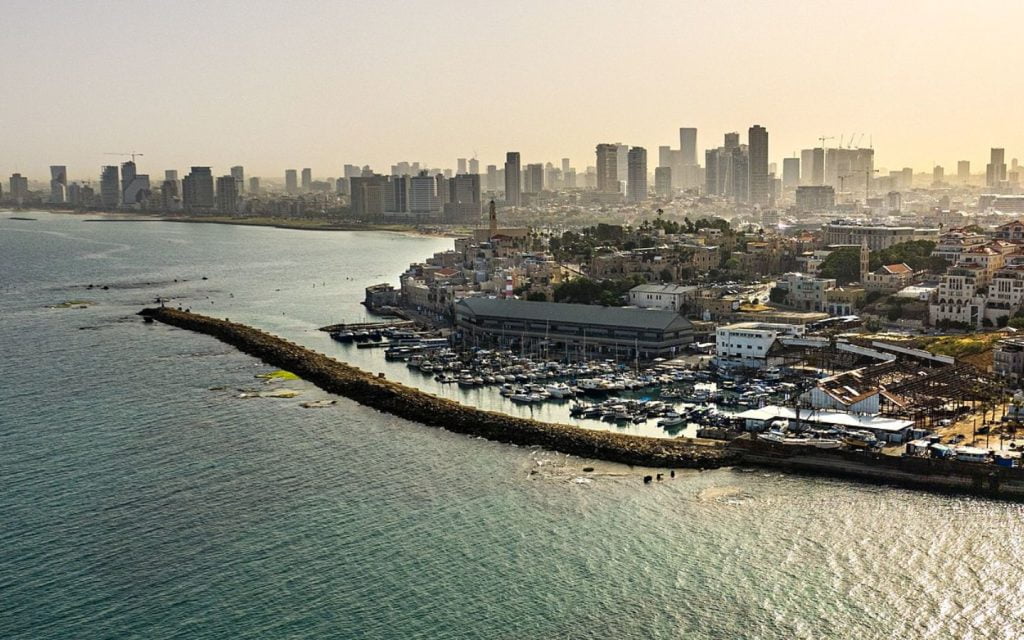
Israel’s Real Estate Market: High Demand and Premium Pricing
Urban Focus: In Israel, the real estate market is heavily concentrated in urban areas, particularly in cities like Tel Aviv, Jerusalem, and Haifa. These cities are the epicenters of economic, cultural, and social life, which naturally drives a high demand for housing. The limited availability of land in these urban areas further exacerbates this demand, leading to a competitive market with premium pricing.
Population Growth and Urban Development: Israel’s population is steadily growing, and with it, the demand for housing. This growth is not just in numbers but also in affluence, as the country’s economy continues to strengthen. The urban development projects in major cities are a response to this demand, but they also contribute to the rising property prices, as new developments often cater to the higher end of the market.
Investment Hotspot: Despite the high prices, the Israeli real estate market is seen as a lucrative investment opportunity. The steady appreciation of property values makes it an attractive option for both local and international investors. This investment interest further fuels the market’s dynamism but also contributes to the affordability challenges faced by first-time homebuyers.
Portugal’s Real Estate Market: Diversity and Accessibility
Wide Range of Options: Portugal’s real estate market is characterized by its diversity. From the bustling streets of Lisbon and Porto to the serene landscapes of the Algarve and the rustic charm of the Douro Valley, the market caters to a wide spectrum of preferences and budgets. This diversity is one of Portugal’s key strengths, attracting a varied demographic of buyers and investors.
Growth in the Luxury Segment: The luxury segment of Portugal’s real estate market, particularly in coastal regions and urban centers, has seen substantial growth. Properties such as high-end villas, penthouses, and renovated historical buildings are particularly popular among affluent buyers. This segment’s growth is not just driven by the living standards and amenities these properties offer but also by the lifestyle and cultural richness that Portugal is known for.
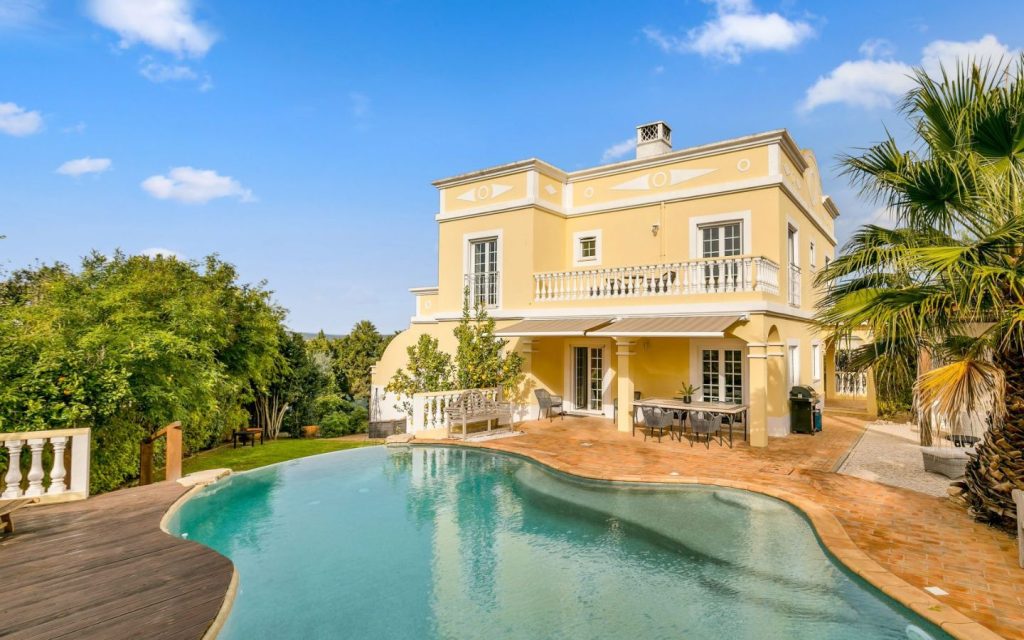
Rural and Suburban Appeal: Beyond the luxury segment, Portugal’s real estate market also offers affordable options in rural and suburban areas. These areas are attracting buyers looking for a quieter lifestyle or a retreat from the hustle and bustle of city life. The affordability of properties in these regions, combined with the country’s overall high quality of life, makes them attractive for retirees, families, and remote workers.
Price Dynamics and Trends
Israel’s Real Estate Market: Steady Growth Amidst High Demand
The Israeli real estate market has shown a consistent upward trend in property prices, particularly in urban areas. According to data from the Central Bureau of Statistics, there has been a notable increase in house prices over the years. For instance, in 2023, the quarterly change in house prices, adjusted for inflation, showed variations with a 0.54% increase in Q1 and a -1.91% decrease in Q2. This fluctuation reflects the dynamic nature of the market, influenced by factors such as economic growth, urban development, and population increase.
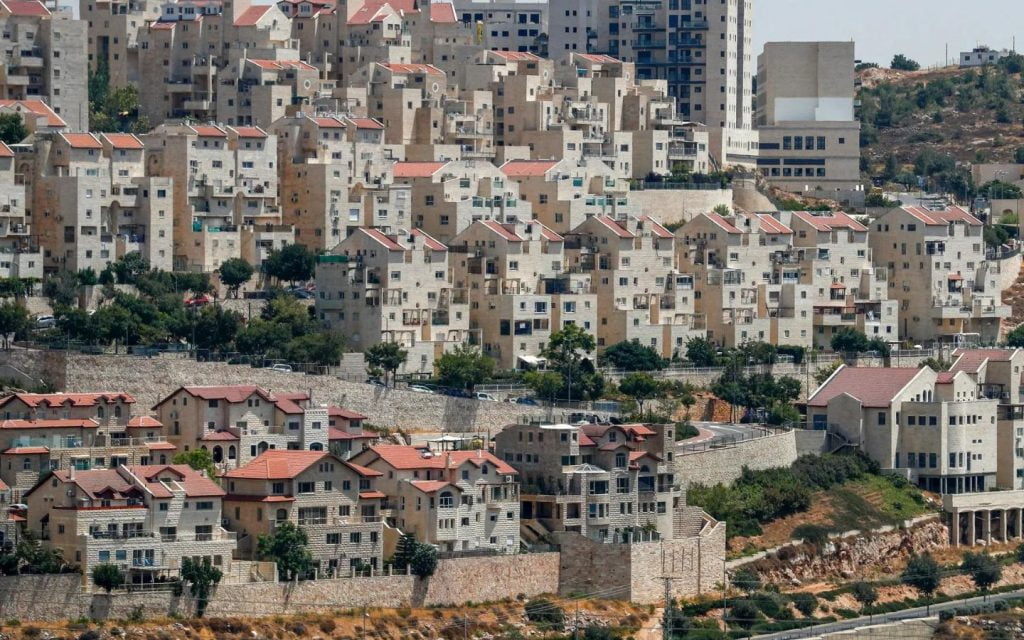
The trend over the past decade has been predominantly positive, with only a few quarters showing a decline in prices. This steady growth is a testament to the robustness of the Israeli real estate market, driven by high demand in major cities and limited land availability.
Portugal’s Real Estate Market: Moderate and Steady Price Increases
In contrast, Portugal’s real estate market has experienced more moderate but steady growth in property prices. Data from the European Central Bank indicates that the Portuguese market has seen a consistent rise in house prices, albeit at a slower pace than Israel. For example, in 2023, the quarterly change in house prices in Portugal showed an increase of 3.62% in Q1 and 0.95% in Q2, adjusted for inflation.
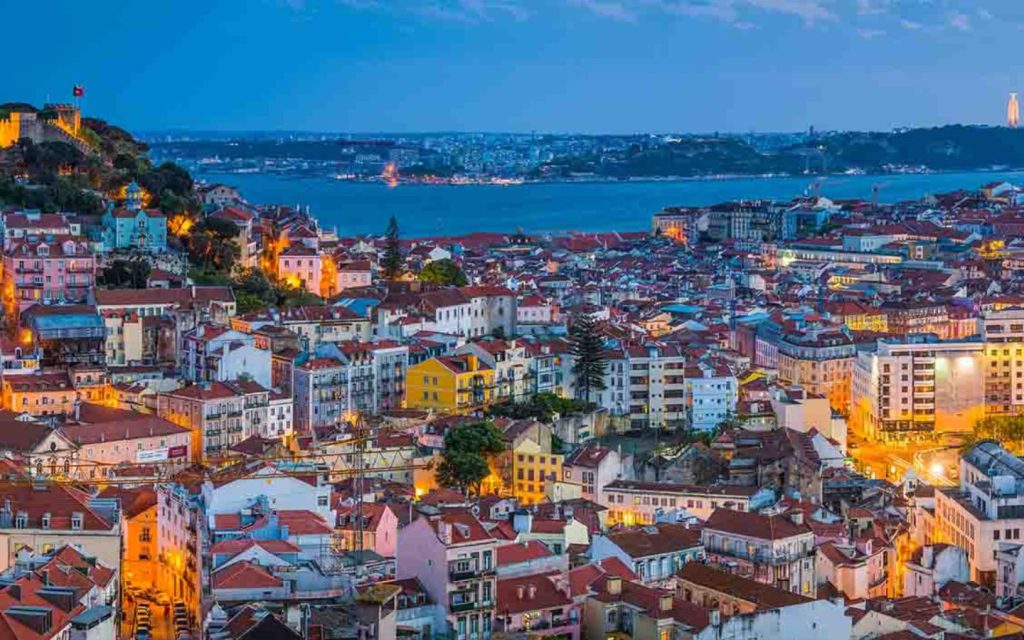
The Portuguese market has been less volatile compared to Israel, with a more gradual increase in prices. This steady growth pattern makes the Portuguese real estate market attractive for long-term investment and residential purposes. The market’s stability is appealing to buyers who are looking for affordable options without the rapid price escalations seen in other markets.
The Israeli and Portuguese real estate markets present two different scenarios. Israel’s market is characterized by high demand and rapid price increases, especially in urban centers. This has led to a competitive market with high property values. On the other hand, Portugal’s market is marked by its gradual and steady growth, offering more affordable and stable investment opportunities.
Comparative Cost Analysis
The real estate markets of Israel and Portugal present contrasting landscapes in terms of property prices, both in cities and outside of them.
Property Prices in Cities
In Israel, the cost of buying an apartment in the cities is significantly higher compared to Portugal. According to Numbeo, the price per square meter to buy an apartment in the city center in Israel stands at approximately €7,636.29. This high cost is indicative of the robust demand and limited space in major Israeli cities.
On the other hand, Portugal offers more affordable options in its cities. The price per square meter to buy an apartment in the city center in Portugal is around €2,713.05. This lower price point makes Portugal an attractive destination for those seeking urban living at a more reasonable cost.
Property Prices Outside Cities
The trend of higher property prices in Israel continues outside of cities. In Israel, the price per square meter to buy an apartment outside of the center is approximately €5,920.78. This reflects the overall high cost of living and the demand for property across the country.
Conversely, Portugal’s property prices outside cities are considerably lower. The price per square meter to buy an apartment outside of the center in Portugal is around €1,855.59. This difference highlights Portugal as a more accessible market for those looking to buy property in less urbanized areas.
Comparison of Real Estate Prices per Square Meter
Investment and Lifestyle Advantages in Portugal
- Diverse Investment Options: Portugal’s real estate market caters to a wide range of preferences and budgets, from urban apartments to luxurious villas and penthouses.
- High Rental Yields: Cities like Lisbon and Porto offer attractive rental yields, particularly in the tourist sector, making them ideal for investment properties.
- Lifestyle Benefits: Portugal is renowned for its pleasant climate, rich cultural heritage, and high quality of life, adding intrinsic value to property ownership.
- Tourism and Retirement Haven: With its beautiful landscapes, safe environment, and affordable cost of living, Portugal is a popular destination for tourists and retirees alike.
In summary, while Israel’s real estate market is characterized by its robustness and high demand in urban areas, Portugal offers a more varied and accessible market with significant advantages for investment and lifestyle. The affordability, coupled with high quality of life and investment incentives, make Portugal an attractive option for property buyers and investors. Whether it’s for a city apartment, a luxurious villa, or a scenic penthouse, Portugal’s real estate market caters to a wide array of preferences and budgets.
Laws and Programs for Moving to Portugal

Portugal offers a variety of programs and legal pathways that cater to different types of immigrants, including those of Sephardic Jewish descent, digital nomads, entrepreneurs, and individuals seeking favorable tax conditions. Each of these programs is designed to simplify the immigration process and provide attractive conditions for new residents.
Sephardic Jews Immigration Program
Portugal acknowledges its historical connection to Sephardic Jews and offers a special program for their descendants. This program provides a streamlined process for obtaining Portuguese citizenship. Eligible individuals must demonstrate a traditional connection to a Sephardic community of Portuguese origin. This is typically done through family surnames, language, direct or collateral ancestry, and family records.
The process involves submitting an application along with the necessary documentation to prove Sephardic heritage. Once approved, applicants can obtain Portuguese citizenship without the requirement of residency in Portugal. This program has been particularly popular among Sephardic Jews from countries like Israel, Turkey, and Brazil.
Other Programs
Digital Nomad Visa
The Digital Nomad Visa is a recent addition to Portugal’s immigration options, catering to the growing trend of remote working. This visa is ideal for individuals who work remotely for companies that are based outside of Portugal. To qualify for this visa, applicants must meet the following criteria:
- Proof of Stable Income: Applicants must demonstrate a consistent and stable income from their remote work. This is to ensure that they can support themselves while living in Portugal.
- Employment with a Non-Portuguese Company: The applicant should be employed by, or have a contract with, a company based outside of Portugal.
- Remote Work Capability: The nature of the applicant’s work should be such that it can be performed remotely, without being location-specific.
The Digital Nomad Visa allows individuals to experience living in Portugal while continuing their existing employment. It’s an attractive option for those who wish to enjoy the Portuguese lifestyle without disrupting their professional life.
Startup Visa
The Startup Visa program is designed to attract international entrepreneurs interested in establishing their startups in Portugal. This program is part of Portugal’s initiative to boost innovation and economic growth. Key aspects of the Startup Visa include:
- Innovative Business Plan: Applicants must present a business plan that demonstrates innovation, scalability, and potential for job creation.
- Economic Viability: The startup should have the potential to generate turnover and create jobs.
- Minimum Financial Requirement: Entrepreneurs must have sufficient financial resources to support themselves and their projects during the initial stages.
Successful applicants are granted a residency visa, which can eventually lead to permanent residency and citizenship. The program also provides support in terms of networking, access to potential investors, and assistance with integration in Portugal.
Non-Habitual Resident (NHR) Tax Regime
The NHR program is a tax regime offering favorable conditions for individuals who have not been tax residents in Portugal in the last five years. The program is designed to attract skilled professionals, high-net-worth individuals, and retirees. Key benefits include:
- Tax Exemptions: NHR status provides exemptions on foreign-sourced income, such as pensions, dividends, royalties, and interest.
- Reduced Tax Rates: Certain Portuguese-sourced incomes, like salaries from high-value-added activities, are taxed at a flat rate of 20%, significantly lower than standard rates.
- Duration of Benefits: The NHR status is valid for ten years, offering a decade of tax advantages.
The NHR program is particularly appealing to retirees and professionals with substantial income from outside Portugal, allowing them to benefit from the country’s mild climate and high quality of life while enjoying significant tax advantages.
These programs collectively make Portugal an attractive destination for a wide array of individuals, from digital workers and entrepreneurs to those seeking tax-efficient residency. They reflect Portugal’s openness to global talent and its commitment to fostering a diverse and dynamic community.
Step-by-Step Plan to Immigrate from Israel to Portugal

Immigrating from Israel to Portugal involves a series of steps, each crucial for a smooth transition. Here’s a comprehensive guide to help you navigate the process:
Step 1: Research and Decision-Making
- Understand Your Options: Research the various residency programs Portugal offers, such as the Golden Visa, Non-Habitual Resident (NHR) program, Digital Nomad Visa, and the Sephardic Jews Immigration Program.
- Evaluate Your Eligibility: Assess which program best suits your circumstances based on your heritage, professional status, investment capacity, or other relevant criteria.
- Plan Financially: Consider the cost of living, real estate prices, tax implications, and other financial aspects of moving to Portugal.
Step 2: Gather Necessary Documentation
- Personal Documents: Prepare your passport, birth certificate, and other personal identification documents.
- Proof of Income or Financial Stability: This may include bank statements, employment contracts, or proof of investment funds, depending on the chosen immigration program.
- Criminal Record Check: Obtain a criminal record certificate from Israeli authorities, as most residency programs require a clean criminal record.
- Health Insurance: Secure comprehensive health insurance that is valid in Portugal.
Step 3: Choose and Apply for the Appropriate Visa/Program
- Select the Right Program: Based on your research and eligibility, choose the program that aligns with your immigration goals.
- Complete Application Forms: Fill out the necessary application forms for the chosen program. This can often be done online.
- Submit Documentation: Along with your application, submit all the required documentation, including proof of eligibility for the specific program.
Step 4: Find Accommodation
- Research Housing Options: Look into the real estate market in Portugal to find suitable accommodation. Consider factors like location, type of property, and budget.
- Engage a Real Estate Agency: Consider working with a reputable agency like Roca Estate to find the ideal property that meets your needs and investment goals.
Step 5: Plan Your Move
- Organize Logistics: Plan the logistics of your move, including shipping personal belongings, arranging travel, and ensuring you have temporary accommodation if needed upon arrival.
- Learn About Portuguese Culture and Language: Familiarize yourself with Portuguese culture and consider learning the language to ease your integration into the community.
Step 6: Finalize Residency and Settle In
- Attend Necessary Appointments: Once in Portugal, you may need to attend interviews or additional appointments as part of your residency application.
- Register with Local Authorities: Register your address with the local town hall and obtain your tax identification number (NIF).
- Open a Bank Account: Set up a local bank account, which is essential for various transactions and services in Portugal.
Step 7: Enjoy Your New Life in Portugal
- Explore and Integrate: Take time to explore your new surroundings, meet new people, and integrate into the local community.
- Stay Informed: Keep yourself updated on any changes in immigration laws or residency requirements to maintain your legal status in Portugal.
Remember, each immigration journey is unique, and it’s important to stay flexible and patient throughout the process. Seeking advice from legal and immigration professionals can also be invaluable in navigating the complexities of moving to a new country.
How Roca Estate Can Assist You

As you embark on your exciting journey from Israel to Portugal, we at Roca Estate are here to ensure that your transition is seamless and rewarding. Our expertise in the Portuguese real estate market, combined with our commitment to personalized service, makes us your ideal partner in this significant life change. Here’s how we can assist you:
Tailored Property Search
- Understanding Your Vision: At Roca Estate, we begin by understanding your specific needs and preferences. Whether you’re seeking a cozy apartment, a luxurious villa, or a lucrative investment property, we tailor our search to match your unique requirements.
- Diverse Property Options: Our extensive portfolio includes a variety of properties across Portugal, ensuring that we have something to suit every taste and budget.
- Informed Decision-Making: Our team of experts provides insights into the local real estate market, helping you make informed decisions that align with your goals.
Legal and Administrative Support
- Legal Expertise: We guide you through the legal aspects of property purchase in Portugal, ensuring full compliance with all regulations.
- Streamlined Paperwork: From managing paperwork to overseeing transactions, we ensure a hassle-free process in acquiring your new property.
After-Sales and Ongoing Support
- Ease of Settling In: Our support extends to helping you settle into your new home, providing information on local services, amenities, and community integration.
- Continued Assistance: Our relationship with you doesn’t end with the property purchase. We are here to address any post-purchase needs or concerns.
- Property Management Services: For investment properties, we offer property management solutions to ensure your asset is well-maintained and yields returns.
Personalized Investment Consultation
- Strategic Investment Advice: For clients interested in real estate investment, we provide tailored advice to meet your investment objectives.
- Market Insights: We offer in-depth market analysis, keeping you informed about growth opportunities and trends in the Portuguese real estate market.
At Roca Estate, we understand that moving to a new country is more than just a physical relocation; it’s a journey filled with aspirations and dreams. Our comprehensive services are designed to ensure that your move to Portugal is not just about finding a new home, but about creating a fulfilling and enriching life experience. Let us be your trusted partner in this exciting new chapter of your life.
Why Choose Roca Estate?
- Local Market Knowledge: We have in-depth knowledge of the Portuguese real estate market.
- Customer Service Excellence: Our commitment to customer satisfaction is unparalleled.
- Efficient and Quality Services: We streamline the property buying process, making it convenient and hassle-free
Conclusion
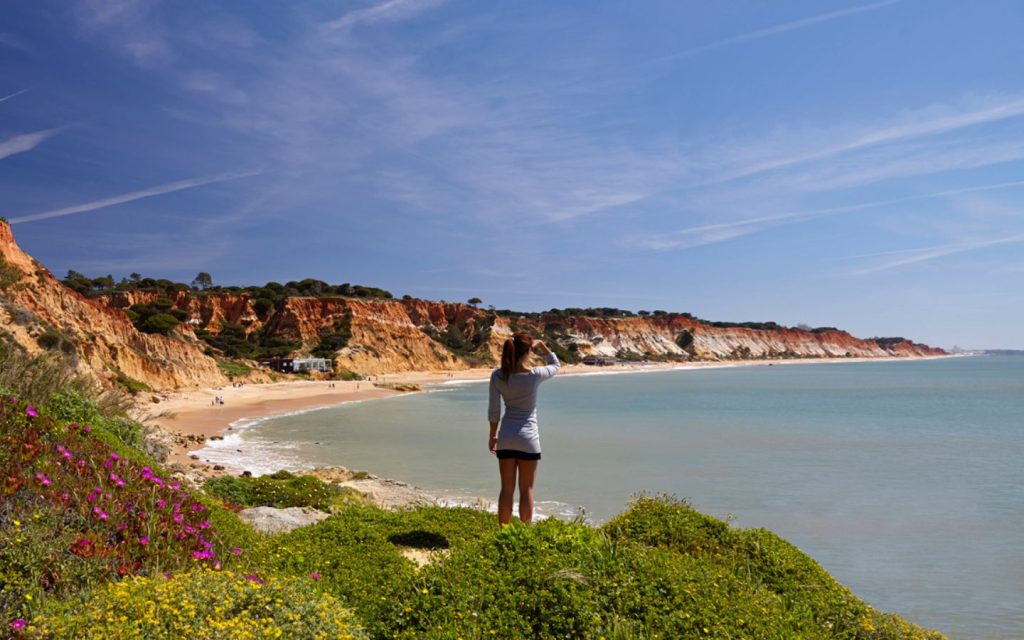
In conclusion, immigration from Israel to Portugal offers a unique blend of opportunities, from the welcoming climate and rich cultural tapestry to the advantageous real estate market and favorable immigration programs. Whether you are drawn to Portugal for its quality of life, economic prospects, or the allure of its diverse landscapes, this country presents a compelling destination for Israelis seeking a change. The comparative analysis of Israel and Portugal underscores the distinct advantages Portugal offers, particularly in terms of cost of living, real estate affordability, and a supportive environment for both individuals and families.
As you consider this life-changing move, remember that Roca Estate is here to guide you every step of the way. Our expertise in the Portuguese real estate market, combined with our comprehensive range of services, makes us the perfect partner to help you navigate this transition. From finding your dream home to settling into your new community, we are committed to ensuring your move to Portugal is as seamless and enjoyable as possible. Contact Roca Estate today to embark on your journey to a new life in Portugal, where new adventures and opportunities await.

